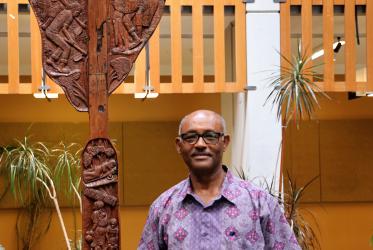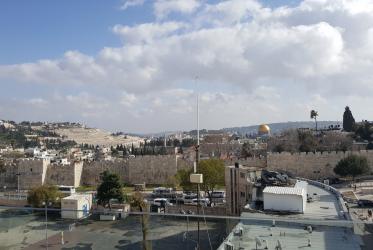Displaying 1 - 20 of 35
Initiative zu Ostern Bibelstudie: Beten ist heilig
22 March 2022
Initiative zu Ostern Bibelstudie: Das Zuhause ist heilig
22 March 2022
Easter Initiative Bible Study: Worship Is Sacred
14 March 2022
Easter Initiative Bible Study: Home Is Sacred
14 March 2022
Jericho - Auf den Spuren Jesu wandeln
01 April 2021
Jéricho - Marcher sur les traces de Jésus
01 April 2021
Jericho - Walking in the Footsteps of Jesus
30 March 2021
Former WCC executive finds joy working for peace in Ethiopia
06 August 2019
#WCC70: Churches as “freedom agents”
12 February 2018
#WCC70: Les Églises, des «agents de la liberté»
12 February 2018
South Sudan church leaders offer Christmas season roadmap for hope
21 December 2017
Ein Gespräch mit dem äthiopischen Patriarchen Abune Matthias
14 February 2017
An interview with the Ethiopian Patriarch, Abune Matthias
14 February 2017




